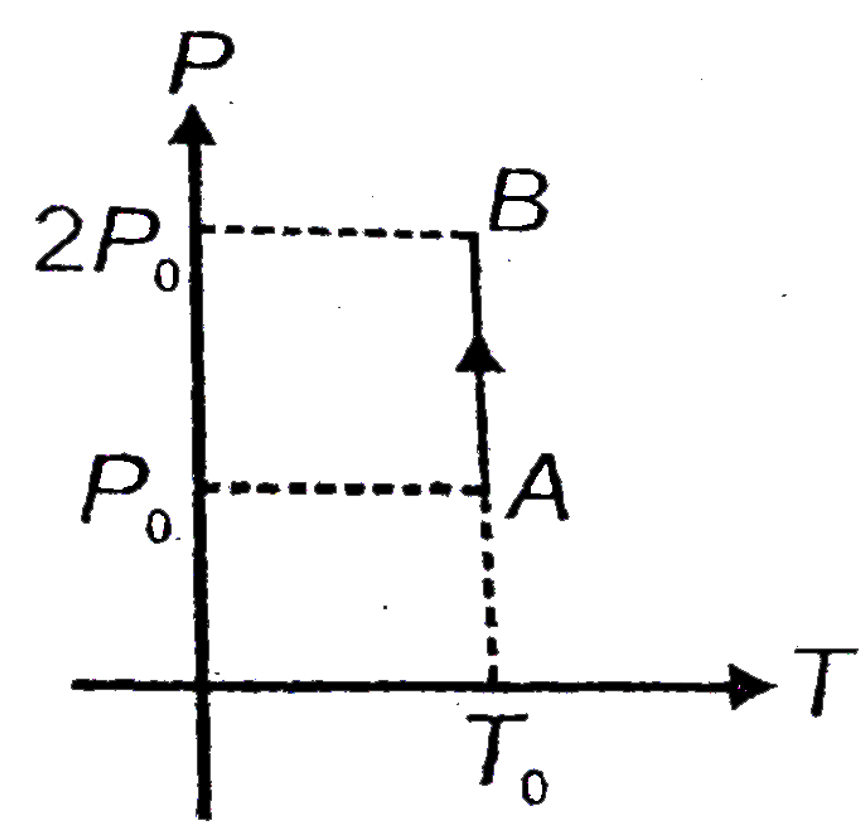What is the meaning of pressure of the gas?
Step-by-Step Solution:
1. Definition of Pressure:
- Pressure is defined as the force exerted by a substance on another substance per unit area. Mathematically, it can be expressed as:
Pressure(P)=Force(F)Area(A)
2. Pressure in Gases:
- In the context of gases, the pressure is the force that the gas exerts on the walls of its container. This force arises from the collisions of gas molecules with the container's surface.
3. Mathematical Representation:
- For gases, pressure can be derived from the ideal gas equation, which is represented as:
PV=nRT
- Here, P is the pressure, V is the volume, n is the number of moles of gas, R is the universal gas constant, and T is the temperature in Kelvin.
4. Rearranging the Ideal Gas Equation:
- To express pressure in terms of the other variables, we can rearrange the ideal gas equation:
P=nRTV
- This equation shows that pressure is directly proportional to the number of moles of gas and the temperature, and inversely proportional to the volume of the gas.
5. Conclusion:
- Thus, the pressure of a gas is a measure of the force it exerts on the walls of its container, and it can be quantitatively described using the ideal gas equation.
---
- Pressure is defined as the force exerted by a substance on another substance per unit area. Mathematically, it can be expressed as:
Pressure(P)=Force(F)Area(A)
- In the context of gases, the pressure is the force that the gas exerts on the walls of its container. This force arises from the collisions of gas molecules with the container's surface.
- For gases, pressure can be derived from the ideal gas equation, which is represented as:
PV=nRT
- Here, P is the pressure, V is the volume, n is the number of moles of gas, R is the universal gas constant, and T is the temperature in Kelvin.
- To express pressure in terms of the other variables, we can rearrange the ideal gas equation:
P=nRTV
- This equation shows that pressure is directly proportional to the number of moles of gas and the temperature, and inversely proportional to the volume of the gas.
- Thus, the pressure of a gas is a measure of the force it exerts on the walls of its container, and it can be quantitatively described using the ideal gas equation.
Topper's Solved these Questions
- STATES OF MATTERBOOK - CENGAGE CHEMISTRY ENGLISHCHAPTER - STATES OF MATTEREXERCISE - Exercises (Fill In The Blanks)
25 Videos
- STATES OF MATTERBOOK - CENGAGE CHEMISTRY ENGLISHCHAPTER - STATES OF MATTEREXERCISE - Exercises (Ture False)
25 Videos
- STATES OF MATTERBOOK - CENGAGE CHEMISTRY ENGLISHCHAPTER - STATES OF MATTEREXERCISE - Concept Application 5.3
1 Video
- SOME BASIC CONCEPTS AND MOLE CONCEPTBOOK - CENGAGE CHEMISTRY ENGLISHCHAPTER - SOME BASIC CONCEPTS AND MOLE CONCEPTEXERCISE - Archives Subjective
11 Videos
- STOICHIOMETRYBOOK - CENGAGE CHEMISTRY ENGLISHCHAPTER - STOICHIOMETRYEXERCISE - Archives Subjective
33 Videos
Similar Questions
The volume of a certain mass of gas at a pressure of 5×104Pa is doubled adiabatically. What is the final pressure of the gas ? [γ=1.4]
View SolutionFor a given mass of gas the variation of pressure versus temperature is shown in the figure. What is the ratio of volume of the gas at points A and B.
 .
.
View Solution
Knowledge Check
What is the effect on the pressure of a gas if its temperature is increased at constant volume ?
AThe pressure of the gas increases.BThe pressure of the gas decreases .CThe pressure of the gas remains same .DThe pressure of the gas becomes half.
152mL of a gas at STP was taken to 20∘C and 729mm pressure. What was the change in volume of the gas?
View SolutionA gas is in equilibrium with water at a certain temperature and pressure what will happen if
Pressure of the gas is increased ?
View SolutionA monoatomic gas at pressure P1 and volume V1 is compressed adiabatically to 18th of its original volume. What is the final pressure of gas.
View SolutionPressure of a gas at S.T.P. is doubled and the temperature is raised to 546 K. What is the final volume of the gas ?
View SolutionWhat is the cause of gas pressure ? How is it measured ?
View SolutionIf the pressure of 2 litres of an ideal gas is 4 atm then what will be the pressure of the gas if the volume is reduced to one- fourth of its present value?
View Solution250mL of nitrogen gas maintained at 720mm pressure and 380mL of oxygen gas maintained at 650mm pressure are put together in 1L flask. If temperature is kept constant, what will be the final pressure of the mixture?
View Solution